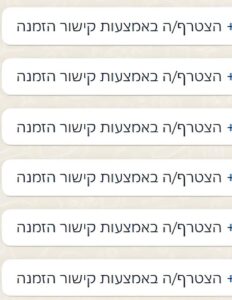* Translated by Janine Muller Sherr
In an age in which we grapple with so many distractions and are inundated with tips about how to best manage our time, this week’s parasha offers us a simple but revolutionary suggestion: Whatever is important to you, record it in your day planner.
It sounds simple, but according to Rabbi Jonathan Sacks, z”l, this can be a life-changing concept. He learned it from this week’s parasha, Emor, which lists all our holidays: Shabbat, Pesach, Succot, Shavuot, Sefirat Ha’Omer, Rosh Hashana and Yom Kippur. Our yearly calendar, so easily accessible today on our cell phones, was given to us in the desert thousands of years ago and we have strictly adhered to it ever since.
In life, time is our most precious commodity, and how to manage that time is not a technical question but a fundamental one that reflects the very essence of who we are. Compiling a long to-do list often does not help us to achieve our goals. But if we organize our tasks in a planner, setting aside specific times for the completion of those tasks, we are more likely to accomplish the goals that are important to us.
This is exactly what our parasha is doing when it outlines the Jewish year for us: telling us in advance that we need to set aside time for holy endeavors. To stop once a week on Shabbat and step away from the “rat race,” our preoccupation with money, and our need to always be “on.” To stop once a year on Yom Kippur to reflect on the direction of our lives, to ask for forgiveness, and to start anew. To stop everything on Pesach in order to speak about freedom, our exodus from Egypt, and our shared story as a people. To accept the Torah again on Shavuot and renew our commitment to following the Ten Commandments.
The Torah insists that we strive to make our daily lives meaningful: to focus not just on what is urgent, but on what is important.
But there is another dimension here: Our parsha doesn’t only provide us with a structure for our time; it also “synchronizes” all of our daily planners, recognizing that our most precious time is the time we spend together.
You can spend a lifetime talking about the importance of freedom, rest, and tradition. But it’s not enough to verbalize our ideals; we must also experience and actualize them.
Rabbi Sacks observed that many people in Western society do not make good use of their time. The innovations of technology, automation, and, increasingly, the tools of AI provide us with an abundance of free time. But are we using this time effectively to pursue meaningful activities? Do our planners reflect our values and goals?
Something to think about this Shabbat.
Shabbat Shalom.









